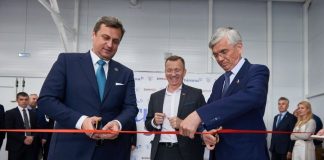For our research, we have selected 30 Facebook profiles. The complete list was to reflect various aspects of community life, so, in addition to political entities, politicians, and the media, it also included several cultural organizations, people publishing opinion-forming content (“influencers”) and even the members of radical groups.
We have analysed these 5 narratives:
- “The territory of Slovakia should change (in favor of Hungary)”,
- “Hungary, or the Hungarian government, is the guardian of traditional values (from liberal elites, the liberal EU, migration, etc.) “,
- the Hungarian minority/identity in the south of Slovakia is threatened”,
- “Ethnic Hungarians in Slovakia should apply for Hungarian citizenship” – the topic of dual citizenship,
- “The Hungarian state cares for Hungarian communities abroad”.
For a better understanding of the above-mentioned narratives, the publication also provides a description of the historical context of Slovak-Hungarian relations: from the Treaty of Trianon through population exchanges and territorial disputes between the two countries to the current state of the Hungarian minority in Slovakia. Among other things, the publication captures the current relationship of the Hungarian community in Slovakia with the mother state. It deals with the problematic financing of this minority by Hungary.
Main findings
- All five examined narratives appeared to a greater or lesser extent in the analysed content of selected actors.
- Some of the narratives have the potential to polarize society, but also to radicalize members of the minority community.
- Narratives that have the potential to stir up nationalist or even irredentist ideas have their place in the Slovak-Hungarian information space. Some have stronger support and are more widespread than others, and many are also supported by various politicians and the media.
- In recent years, we have witnessed several attempts by the Hungarian government, led by Prime Minister Viktor Orbán, at virtual reunification of the Hungarian nation. Not even the issue of the Treaty of Trianon is a closed chapter for these actors.
- This is, however, not motivated solely by an emotional connection between the “kin” state and its minority. Every year, the Hungarian government supports Hungarian communities beyond the borders of Hungary with considerable sums of money (financial contributions).
- Organizations close to Slovak-Hungarian politicians also received a share, not to mention the possibility of acquiring Hungarian citizenship on the basis of an emotional attachment to Hungary, which also gives a person the right to vote in Hungarian parliamentary elections.
- According to experts, the objective behind this financial assistance and the “generous” approach is to create and strengthen the dependence of the Hungarian community in Slovakia.
- During the research period (from January 2021 to the end of August 2021), several important events took place that resonated in the Slovak-Hungarian information space: the change of the Slovak citizenship law, the visit of the Hungarian Minister of Foreign Affairs to Slovakia without any prior notice to Slovak diplomacy, and the 101st anniversary of the signing of the Treaty of Trianon.
- In the case of the narrative about the poor position of the Hungarian minority, 45% of the posts were of a supportive nature; the narrative about the support of the Hungarian community was supported by up to 78% of relevant posts containing this narrative; the narrative that ethnic Hungarians should be able to accept Hungarian citizenship was supported by 76% of the posts featuring this narrative; in the case of the protection of traditional values, up to 94% of posts related to this narrative were supportive; and for the narrative linked to Trianon, we have found 66% supportive posts.
- Thus, 4 out of 5 narratives had majority support. Although our research did not include a representative sample, this should be seen as a red flag. The spread of nationalist narratives may increase polarization of society, especially given the fact that the Hungarian minority does not currently have its own political representation in the parliament. Thus, various actors, including more radical groupings, can communicate important topics for this community.
Authors:
Anna Peniašková, Karin Kőváry Sólymos, Michaela Ružičková
Editors:
Matej Spišák
This report has been prepared with support from IRI’s Beacon Project.

The opinions expressed are solely those of the author and do not reflect those of IRI.
CHCETE PODPORIŤ NAŠU PRÁCU? POMÔŽTE NÁM CEZ PATREON. MÔŽETE TAK UROBIŤ UŽ ZA €3
https://infosecurity.sk/podpora/














